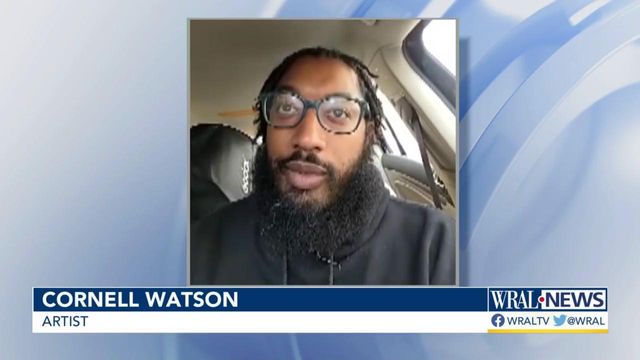Artist accuses UNC gallery of 'censoring' his work by omitting photos of student demonstrators, UNC board members
Controversy is swirling over a photo exhibition at a gallery on the University of North Carolina at Chapel Hill's campus that was canceled.
Posted — UpdatedWatson said he wanted to "point my lens on the Black community of Chapel Hill and the Black legacy."
"Some of these [photos], at least in our estimation, are not reflective of the tone and subject matter we wanted to focus on," Jordan said.
Watson claims by omitting the three photos, his exhibit was being "censored." However, Jordan defended his gallery's decision on Friday, saying the intention was never to "censor" Watson's work.
"How is it censorship when we are working with you to build an exhibition, and this is what we see as not part of the exhibition [theme]?" Jordan said.
He said he would have been open to using the photos of student protests and of the UNC board member in a different exhibit and claims that the photos distracted from the atmosphere of reverence he hoped to create. The theme of the exhibit was supposed to focus on Black Americans connecting to their ancestors, Jordan said.
But Watson maintains that the three photos that Jordan wanted to omit were key to the installation.
"I am not here to sugar coat stuff," Watson said. "Are we here to tell the unapologetic truth or not?"
Related Topics
• Credits
Copyright 2024 by Capitol Broadcasting Company. All rights reserved. This material may not be published, broadcast, rewritten or redistributed.





